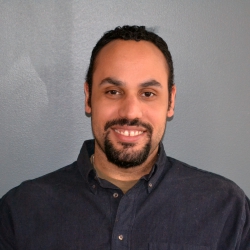May
28
2015

Written by Sean Thomas-Breitfeld
Around the country funders are coming together to support community organizing in black communities. Earlier this month, I moderated a panel discussion at the North Star Fund’s “Let Us Breathe” forum, which served “as a call to community members, donors, grantmakers, activists, organizers, and all New Yorkers to support the movement against anti-Black racism and to prioritize Black leadership” Then last week, North Star announced its first round of grants made through its Let Us Breathe Fund, which was set up to make grants of between $5k and $20k to “Black-led and allied organizing of communities directly impacted by ‘broken windows’ policing, poverty, and injustice in New York City.” Also last week, Resource Generation, a group for young people with wealth, announced that they had raised more than $1 million to support “black-led organizing for black liberation.” And earlier this year, in March, a group of California foundations created the “Rapid Response Fund for Racial Justice” to provide grants of up to $10k to groups working to address the root causes that led to events in places like Ferguson, New York City, and Baltimore.
This new funding for organizing in black communities is long overdue, especially because foundations and donors looking to support organizations that address the particular concerns of black people have often invested in advocacy and direct service groups, rather than community organizing. In the past, the various distinctions between organizational types have led to rigid siloes and a sense of competition between groups, but often black-led organizing groups bridge the traditional divides between service, organizing and advocacy. The ongoing economic crisis in black communities makes it clear that all of these organizational forms are critical, so new funds that expand the pie are hugely important.
Even with the increasing resources, there are certainly still questions about the way the overall funding pie gets sliced. In 2012, the Philanthropic Initiative for Racial Equity raised key challenges and opportunities for funders to consider regarding “mobilizing community power to address structural racism.” Several articles pointed to an underlying concern that many, if not most, community organizing groups and networks are both white-led and rooted in a populist, economic justice analysis, rather than a comprehensive analysis of structural racism and the particular role that anti-black racism plays in maintaining systems of inequity. This theme of the biases and challenges that people of color face in generating foundation dollars for their programs was echoed many times in my own conversations with organizers for the #BlackWorkersMatter report. I heard many organizers express the fear that being explicit about using a racial justice lens would negatively impact their chances of receiving grant dollars. Also, BMP’s previous research on the challenges faced by social change leaders of color under the age of 40, people of color face special challenges gaining legitimacy with funders compared to their white colleagues. Funding black-led organizations in this movement is a good start, but foundations also need to confront the implicit biases that make program officers and boards more comfortable funding white-led organizing groups and a populist economic justice analysis that glosses over the deep and lasting economic crisis in black communities.
New investments in black organizing groups are a response to the current moment where repeated deaths by black people at the hands of police officers have sparked a critical conversation about black liberation. Ultimately though, the funding will have to last even if the media attention and protests wane. And the small grants (of between $5 and $20k) being provided by the new funds in New York and California are still a drop in the bucket in a national funding landscape where six-figure grants are common. Investing in black-led organizing is not just a strategy for addressing the crises of unemployment, police shootings and poverty in black communities; it is crucial to building a strong progressive movement. So we need the foundation world to step up and support the organizations around the country with the potential to amplify and sustain the grassroots energy inspired by the Black Lives Matter movement.
